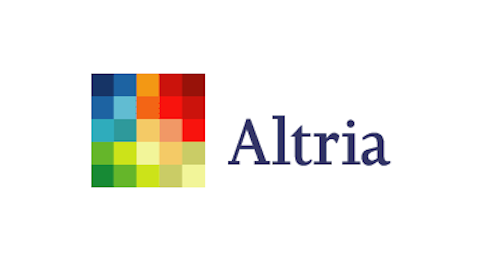When investors think of Philip Morris International Inc. (NYSE:PM), they probably think of a fast growing emerging market tobacco giant which has been paying a consistently growing dividend since it was spun off from Altria Group Inc (NYSE:MO). Its dividend per share rose from $1.54 in 2008 to $3.24 in 2012. Recently, Philip Morris declared a quarterly dividend of $0.85, bringing the forward annualized dividend to $3.40 per share. Should investors consider Philip Morris at its current price? Let’s take a closer look.
EPS growth due to share buybacks
Since the beginning of the year, Philip Morris International Inc. (NYSE:PM) has gained close to 10%, lagging the S&P 500’s return of more than 13%. The mediocre performance for the past six months might be due to the decline in its first-quarter earnings results. In Q1 2013, while its revenue grew 2.8% year-over-year to more than $18.5 billion, its net income decreased 1.7%, from $2.16 billion in the first quarter last year to $2.12 billion in the first quarter this year. Reported operating income was down 0.4%, mainly because of the currency impact. Excluding the currency impact, operating income was actually up 3.1%.
Despite the decline in first-quarter net income, its EPS grew 2.4% to $1.28. The growth in the EPS was attributable to the share repurchase activities. In Q1 2013, Philip Morris International Inc. (NYSE:PM) spent around $1.5 billion to buy back 16.7 million shares, reducing the share count to nearly 1.65 billion. Looking forward, Philip Morris expected to generate around $5.55 to $5.65 EPS, including $300 million in one-year gross productivity and cost savings and $6 billion in share repurchase.
Weak balance sheet

EV/EBITDA stands for Enterprise Value/Earnings Before Interest, Taxes, Depreciation, and Amortization. This ratio takes into account the market value, cash, and debt level, in comparison with the cash flow generating ability of a company. The lower the ratio, the cheaper the stock.
Are Atria and British American Tobacco PLC (ADR) (NYSEAMEX:BTI) better buys?
Compared to its peers Altria Group Inc (NYSE:MO) and British American Tobacco, Philip Morris International Inc. (NYSE:PM)’ valuation stays in between. Its ex-parent, Altria, has a different playground with the main focus on the U.S. market. Altria is considered to have much slower potential growth due to the stricter tobacco regulations in the U.S. What makes Altria interesting is its 26.8% voting interest in SABMiller.
At the time of writing, SABMiller is worth more than $79 billion on the market, valuing Altria Group Inc (NYSE:MO)’s 26.8% interest at around $21.17 billion. Interestingly, the investment in SABMiller was booked at only $6.75 billion in Altria’s balance sheet as of March 2013. Altria is trading at around $35.60 per share with a total market cap of $71.30 billion. The market values Altria the cheapest at 10 times EV/EBITDA.
British American Tobacco PLC (ADR) (NYSEAMEX:BTI) is the most expensively valued tobacco company among the three. At $110 per share, it is worth around $105.4 billion on the market. The market values the company at 12.15 times its EV/EBITDA. The company derived around two-thirds of its revenue from emerging markets. Looking forward, the company will try to simplify the company’s transaction process including developing new lower cost suppliers without quality compromise, increasing production efficiencies, using “Lead Logistics Partners” to manage the third party logistic networks.
Moreover, British American Tobacco PLC (ADR) (NYSEAMEX:BTI) will reduce its SKU portfolio by 17%, with a 60 % reduction in cigarette paper grades and 23% reduction in blends. The move will certainly push up its operating margin, driving its bottom line higher.
My Foolish take
Among the three, British American Tobacco PLC (ADR) (NYSEAMEX:BTI) has the highest dividend yield at 5.20% while Altria Group Inc (NYSE:MO) ranks second with a 4.9% dividend yield. Philip Morris International Inc. (NYSE:PM) offers the lowest, but still a decent dividend yield of 3.7%. Income investors could consider tobacco companies for their portfolios with their juicy dividend yields. I like Philip Morris and British American Tobacco for their growing emerging market business. I also think Altria could be a decent buy because of its understated SABMiller stake.
Anh HOANG has no position in any stocks mentioned. The Motley Fool owns shares of Philip Morris International.
The article Tobacco Investment Is Good for the Long Run, and for Income originally appeared on Fool.com.
Copyright © 1995 – 2013 The Motley Fool, LLC. All rights reserved. The Motley Fool has a disclosure policy.





